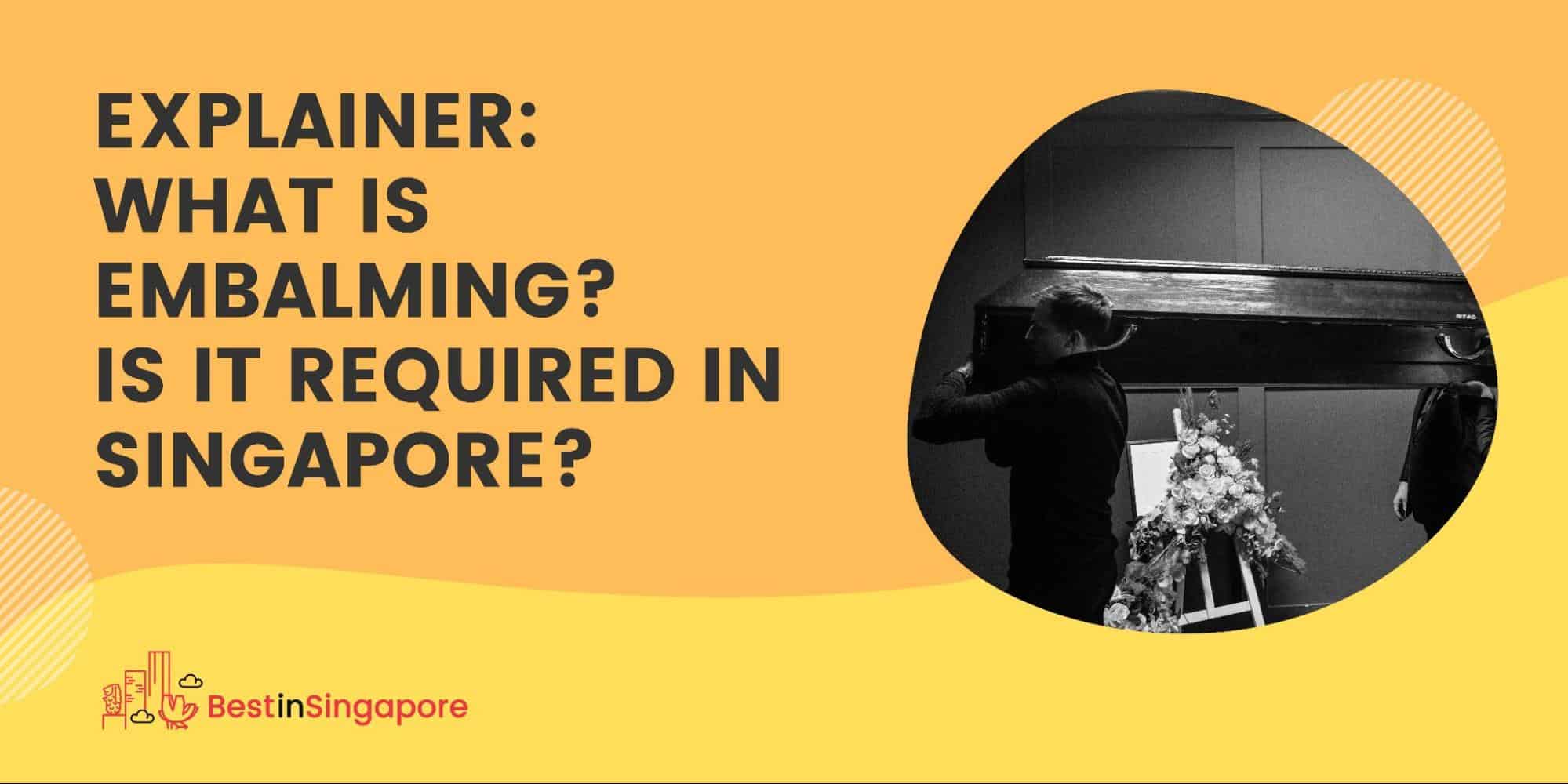Explainer: What Is Embalming? Is It Required in Singapore?
Depending on your religious beliefs, arranging a funeral for a loved one can be a lengthy process. Prior to the wake, your family might be wondering whether you should embalm your loved one or not.
But what exactly does this process entail? And is it a necessity in Singapore? We’ll answer these questions and more in this quick guide about embalming in Singapore.
What is embalming?
To put it simply, embalming is the process of cleaning and preserving a body following death. It involves injecting chemicals and fluids into the body to delay the decomposition process.
In most (if not all) cases, families choose to have their deceased loved one embalmed if they plan on holding a wake or viewing. In other words, embalming is practised in order to make the body presentable for private viewing.
Embalming is necessary if the body will be repatriated overseas, considering that transporting the deceased takes a longer amount of time.
Who can practise embalming?
In Singapore, only funeral parlours with embalming facilities licensed by the National Environment Agency (NEA) are allowed to practise embalming. For more information, you can check out NEA’s list of licensed funeral parlours.
This license ensures that funeral parlours uphold environmental hygiene standards. In Singapore, only experienced embalmers who have taken basic infection control courses are allowed to work at funeral parlours.
Do religions ban embalming?
Religions either have a neutral or negative stance on embalming.
Embalming in Christianity and Catholicism is generally allowed and acceptable. Often, it’s seen as a necessity, especially if a vigil will be held.
While Buddhists and Taoists generally prefer cremation, embalming is generally acceptable. This is often the case for most Chinese-Buddhist or Chinese-Taoist families in Singapore, where they normally hold wakes for a few days.
Because of the fast-paced nature of traditional Hindu funeral rites, embalming isn’t normally practised as it’s seen as unnecessary. In Singapore, many Indian families hold wakes, in which case embalming may be necessary.
On the other hand, Muslim funeral customs prohibit embalming. Apart from the fast-paced nature of Muslim funerals, washing the body of the deceased is an important ritual practised by Muslim families.
Is embalming required in Singapore?
No, embalming isn’t required by law in Singapore nor in most countries. NEA only recommends embalming if the family chooses to hold a wake.
Otherwise, the deceased may also be placed in a hermetically sealed or airtight coffin for up to 7 days before burial or cremation.
Are there COVID-19 restrictions on embalming?
Yes, embalming the body of the deceased who passed away due to COVID-19 isn’t permitted under these circumstances:
- The deceased is deemed to be infectious; OR
- The deceased is deemed to be non-infectious but the date of demise is within 28 days of first positive COVID-19 PCR or ART result.


